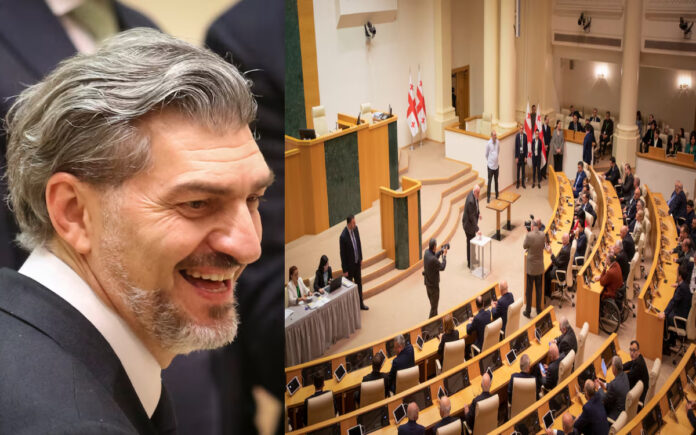Tbilisi: Georgian lawmakers on Saturday elected Mikheil Kavelashvili, a vocal critic of the West, as the country’s new president, replacing pro-European incumbent Salome Zourabichvili. The move has intensified nationwide protests against the government, fueled by public outrage over the suspension of Georgia’s European Union accession talks until 2028.
The ruling Georgian Dream party’s decision to freeze the EU membership bid—a constitutional goal long supported by Georgians—has ignited anger across the country. Polls consistently show strong public backing for EU integration.
Anti-Western Stance
Kavelashvili, a former professional soccer player, is known for his staunchly anti-Western rhetoric. Over the past year, he has accused Western intelligence agencies of conspiring to drag Georgia into a conflict with Russia, the country’s former colonial ruler until 1991.
Hundreds of protesters gathered outside parliament ahead of the presidential vote, braving snowfall to express their dissent. In a symbolic gesture referencing Kavelashvili’s sporting past, they waved red cards at the parliament building and played soccer in the streets.
Protester Vezi Kokhodze described the election as “treason”, saying, “Today’s election represents the clear wish of the system to bring Georgia back to its Soviet roots.”
Electoral Dynamics
The Georgian president is elected by a college of 225 electors, comprising members of parliament and local government representatives. Kavelashvili, the sole candidate, received 224 votes. Opposition parties boycotted the election, continuing their protest against what they allege was fraud in the October parliamentary elections, which gave Georgian Dream 54% of the vote.
Kavelashvili was nominated by Bidzina Ivanishvili, a billionaire and former prime minister widely regarded as the country’s most influential political figure. Ivanishvili has spearheaded efforts to strengthen ties with Russia, a move that has faced domestic and international criticism.
Outgoing President and Continued Protests
Salome Zourabichvili, whose term ends soon, remains a staunch advocate for EU integration and a prominent critic of Georgian Dream. Ahead of the vote, she condemned the election of her successor as “a mockery of democracy” in a post on X (formerly Twitter). Opposition leaders have vowed to continue recognizing Zourabichvili as the legitimate president even after Kavelashvili’s inauguration on December 29.
Prime Minister Irakli Kobakhidze congratulated Kavelashvili on his election and accused the outgoing president of being an “agent” of unnamed foreign powers.
Also Read | Martial Law Fallout: South Korea’s Yoon Battles for Political Survival
Georgia’s Pivot from the West
Once seen as a democratic beacon among former Soviet states, Georgia’s relations with the West have deteriorated in recent years. The government has enacted controversial laws on foreign agents and LGBTQ+ rights, which critics describe as Russian-inspired and authoritarian.
The EU has threatened sanctions over the government’s handling of protests, which have drawn tens of thousands to the streets. Demonstrators have clashed with police, who have responded with tear gas and water cannons. The protests have led to more than 150 injured officers and widespread arrests.
The Georgian Dream government has framed the protests as an attempt to stage a pro-EU revolution. Interior ministry officials claim the demonstrations aim to seize power violently.
As tensions continue to escalate, the country’s foreign policy and democratic trajectory remain at a crossroads, with the public overwhelmingly advocating for a return to pro-Western ideals.



